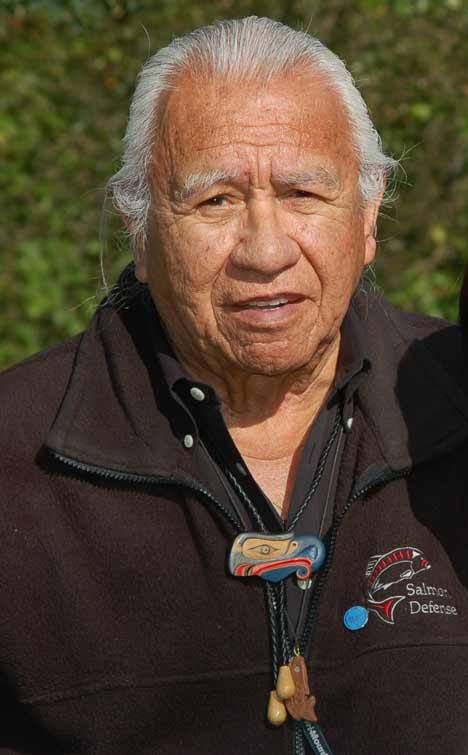From bear grass to huckleberries to cedar and more, it’s getting harder and harder for the treaty Indian tribes in western Washington to find and access natural resources that are central to our culture.
We need the traditional foods, medicines and materials that make us who we are. Like salmon, shellfish and wildlife, these things are part of us as Indian people. They were so important to us that we reserved our right to gather them when we signed treaties with the U.S. government.
Traditional foods are especially important to Indian people today. Almost every one of us knows a person or a family who suffers from diabetes or some other illness – a lot of the time caused by a lack of traditional foods in our diet.
Our weavers, carvers and other artists work to help keep our culture alive, but they are having a difficult time finding the materials they need. Cedar trees are disappearing to development while other important plants are being damaged or killed by pollution.
We are encouraged by recent meetings with National Park Service officials to discuss how we can access park lands to exercise our treaty gathering rights. Tribal access today is limited and varies from park to park. We are committed to working with the National Park Service to ensure proper management of these lands so that we can return to places where we have always harvested.
Out on the coast, the Makah Nation recently celebrated a 600-year-old cedar tree they received from the state Department of Natural Resources (DNR) through the non-profit Potlatch Fund. The tree was growing on state land outside the tribe’s reservation but within the Makah traditional gathering area.
That big cedar tree is us. All of us. And it’s teaching us about sharing. Sharing makes us all stronger.
Gifts created from the giant tree were shared by the Makah with many at the Intertribal Canoe Journey to Neah Bay in July. This annual celebration of our culture is hosted by a different tribe every year, and many of those who make the trip travel in cedar canoes.
It is the nature of Indian people to share. We have shared our land, water and other resources since the first non-Indians arrived in this region. Today we need that same kind of sharing so that we can continue to harvest the natural resources that keep ourselves and our culture alive and strong.
— Billy Frank Jr., Nisqually, is chairman of the Northwest Indian Fisheries Commission. Commission members with ties to the San Juan Islands include the Lummi Indian Nation, Swinomish Indian Tribal Community, and the Tulalip Tribes.




